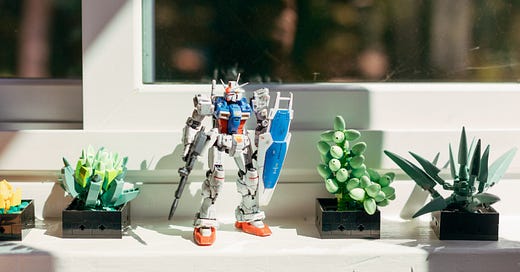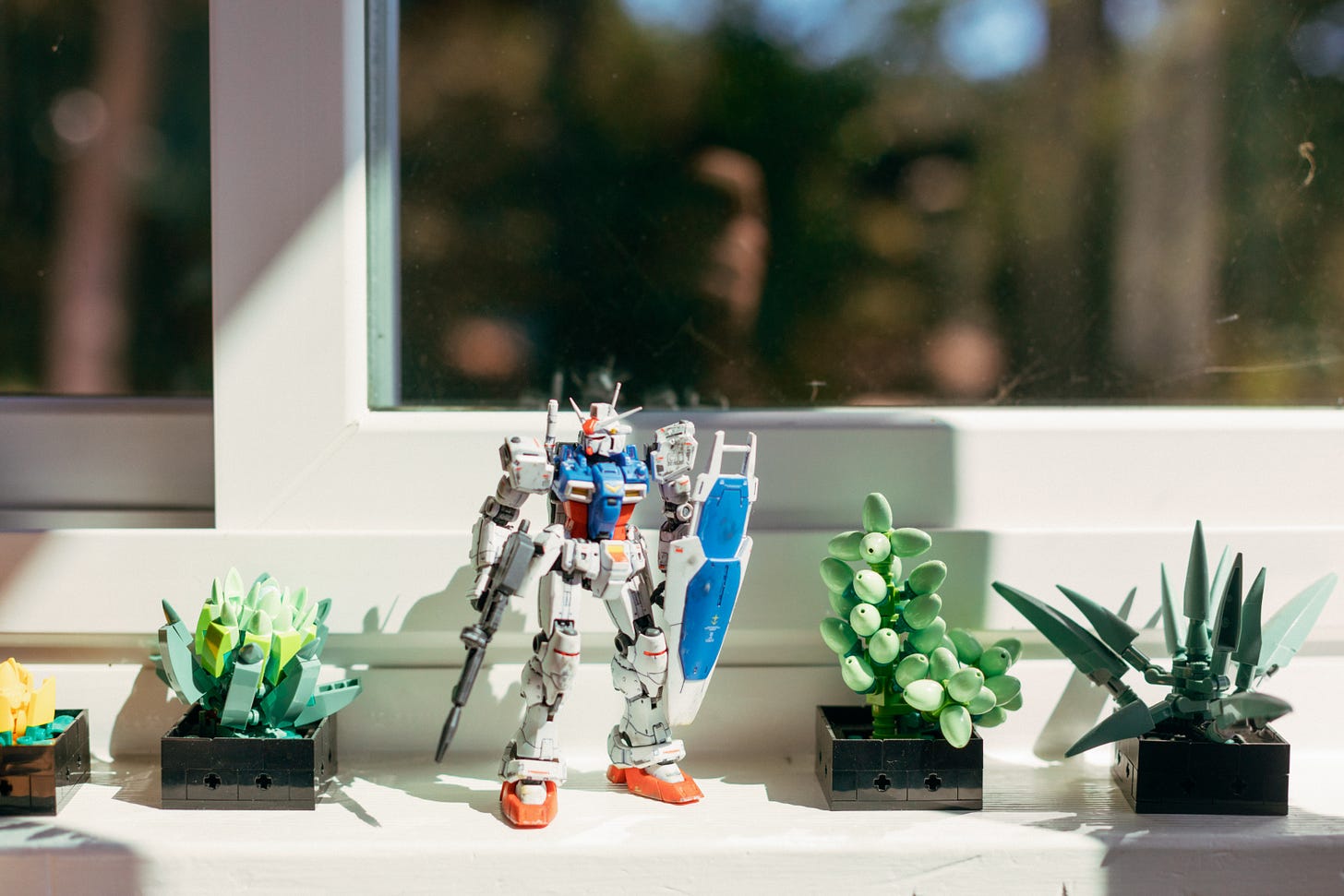Today is a special day. If you’ve been reading my posts or checking out Practice’s About page, you’ve heard about my mysterious, silent co-founder Ben. Get excited because the time has come for Ben to (semi) break his silence by writing this post.
— Erica
It’s me! Ben! The other cofounder. Working on Practice has been one of the most exciting and fulfilling experiences of my professional life so far, and it’s endlessly frustrating that I can’t (yet!) make it my full time job. With luck and some work, soon we’ll be able to make this public, official, and funded, and we can do a proper introduction.
In the meantime, I wanted to talk about one of the things I’m most excited about at Practice—something we’re calling Hobby DNA.
But first: some context
I’ve known Erica since our time together in the art studio. This February Erica and I met up for coffee to chat about our shared tech burnout. But we found ourselves excitedly talking about our creative hobbies instead. I had recently started building Gundam models and found a level of peace, calm, and satisfaction I hadn’t felt in years. When I shared that with Erica, she talked about how miniatures did the same for her—so much so that she had started wondering if her next job could focus on spreading “contagious joy.” We both agreed it didn’t seem very plausible, but it sure was enticing.
Over the next couple of months, we texted back and forth about hobbies and joy until a semi-formed idea popped into my head:
Fast forward a few months, and Practice is here! And one of the core components is matching people with the right creative hobby.
How do you hobby match anyway?
At first, it seemed like it should be simple, right? How many hobbies could there be? 5? 10? A dozen? TWO dozen? Just ask people what they’re into, and match them! If Buzzfeed can match me to my ideal Disney prince by asking about my pasta preferences, then connecting someone to the right hobby should be a piece of cake. (Side note: is cake decorating a creative hobby?)
The more we dug into it, though, the more complex it got. Reddit is full of people seeking hobbies, and their requirements are super specific—budget, space, time, precision, social preferences, material types, environmental impact, physical limitations, and even feelings. I once saw someone request a recommendation for a hobby that “feels like lucid dreaming”!
We also noticed that the dozens of “find your next hobby” quizzes, and multiple pieces in the New York Times all painted a picture of people on the cusp of making joy through creative hobbies, but not knowing where to start. In our own research, we’ve heard the same thing. And every time we pitch Practice, we learn about new criteria and a strong desire for help finding the right hobby. (“Let me know when I can sign up! I need this!”)
So we have some deeply specific user needs. How can we possibly guide people to not just a hobby, but the right hobby—one that will stick, spark joy, and give them what they’re looking for? And if we get it wrong (which, let’s face it, will happen), how do we figure out what we got wrong, and guide them in the right direction?
🧬 Enter Hobby DNA 🧬
At its core, Practice’s Hobby DNA is a database of hobbies. It’s always growing, but as of today, it covers 28 creative hobbies that we think could be a great fit for Practice users. (In a future post, I’ll dive into what is and isn’t a “Practice hobby” and how we’re drawing that line.) Each hobby has about 30 properties that make up its DNA. Some examples of the properties we map for every hobby are:
Initial setup cost
Amount of space needed
Fine motor skills required
Average time per project
Gift factor
Kid-friendliness
Creative vs Recreative (Are you going your own way, or following instructions? Or somewhere in between?)
Level of mess created
And the list goes on!
The first—and most obvious—thing we can do with Hobby DNA is match hobby seekers to a new hobby with personalized nuance. We’ll learn what’s most important to them, what their goals are, and any restrictions they have. Then, we combine that individual Practicer’s profile with the Hobby DNA system to output a series of recommended hobbies, explain why they were a match, and let them explore the full hobby profile along with personalized project recommendations.
Beyond matching, Hobby DNA will give us confidence that even if you try a hobby and don’t love it, we can guide you to a project that is a better match of skill and challenge, or to a new hobby that’s a better fit. And as your life and practice changes, our recommendations will evolve.
Supporting hobby evolution
I wish Hobby DNA existed when I recognized that I love LEGO, but the sets are too expensive to be a regular practice for me. When I started looking for something that might scratch the LEGO itch but wouldn’t cost $50-100 per project, I did a bunch of research and discovered Gundam models, which shared many things I loved about LEGO (small pieces, precise assembly, well-designed instructions, modular building) but added a new dimension of weathering, painting, posing, and photography. It sounded interesting and was a much a lower cost per project. As soon as I assembled the first mini-ship of my first Gundam, I knew my research was worth it. I’d found the perfect creative hobby for me.

I’ve gone deep into Gundam now, but I still build LEGO sets, especially with my kids. (LEGO scores high on “Kid-friendliness” in Hobby DNA!)
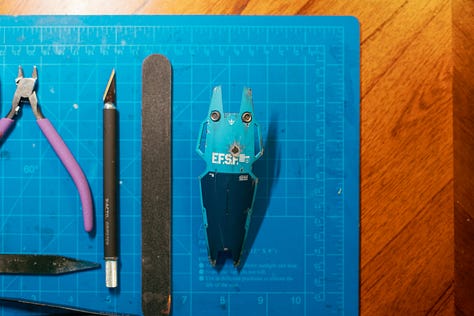


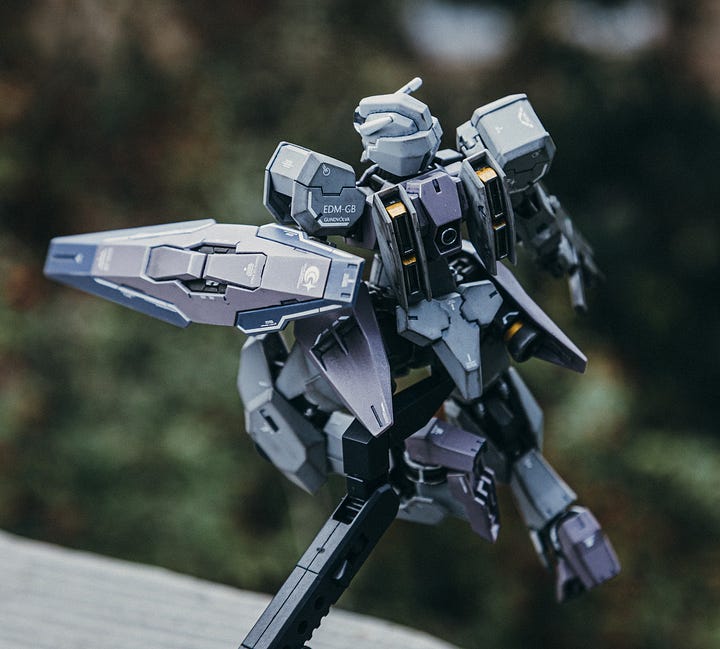
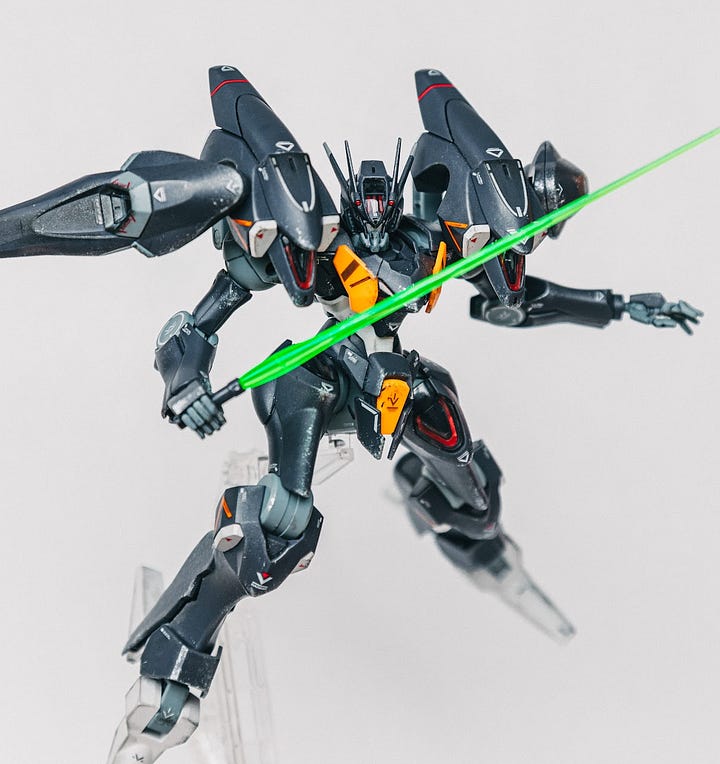
At some point, I may want to find a hobby that is more free-form, and when I do, I expect Hobby DNA will be ready to help me evolve my practice without me having to do a ton of independent research. And, you’ll be able to see what I try out on my Practice Profile!
Big thanks to Ben for being a guest writer this week and for being a great co-founder. His tiny robots are pretty fancy, right?
See you next week!


